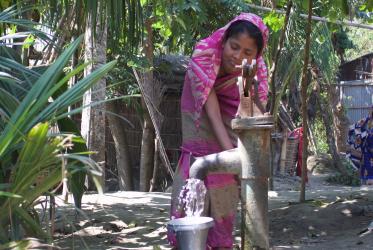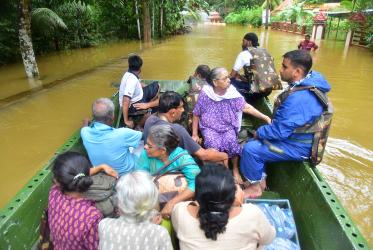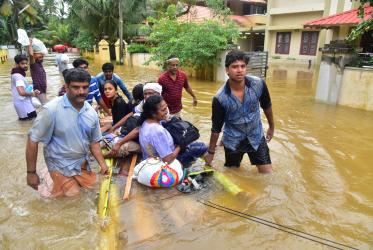Displaying 1 - 20 of 34
New WCC “Eco Ambassadors” pledge to protect our ecology
06 January 2020
“Economy of life” lifted up at special school in Indonesia
22 August 2019
WCC condemns massacre of farmers in Philippines
12 April 2019
El CMI condena el asesinato de campesinos en Filipinas
12 April 2019
All pilgrim routes lead to COP24
11 December 2018
Asian church leaders exchange ideas on diaconia
19 December 2017
G20 summit: call to pray for peace in Hamburg
07 July 2017





